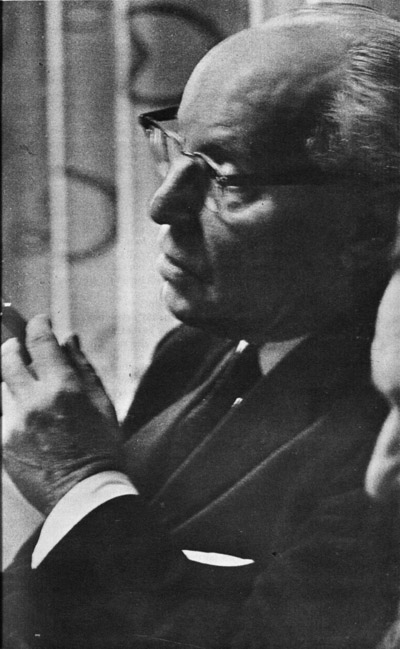Editor of this issue: Thomas Remeikis
Copyright © 1964 LITUANUS Foundation, Inc.

|
LITUANUS
LITHUANIAN
QUARTERLY JOURNAL OF ARTS AND SCIENCES
Volume 10, No.2 - Summer 1964
Editor of this issue: Thomas Remeikis ISSN 0024-5089
Copyright © 1964 LITUANUS Foundation, Inc. |

|
 |
FAUSTAS KIRŠA
1891 - 1964
Faustas Kirša belongs to the generation which reached its peak between the two World Wars with such outstanding figures in Lithuanian poetry, fiction, and drama as Kazys Binkis (1893-1942), Balys Sruoga (1896-1947), Jurgis Savickis (1891-1952), Ignas Šeinius (1889-1959), and Vincas Mykolaitis-Putinas (b. 1893).
Faustas Kirša was born in Lithuania, in the district of Zarasai. He began to write poetry in 1908. His first lyric poems appeared in a magazine in 1912; his first book, Verpetai (The Whirlpools), was published in 1918. It was followed by Aidų Aidužiai (Echoes), 1921; Suverstos Vagos (The Overturned Furrows), 1927; Giesmės (The Chants), 1934; Tolumos (Distances); Šventieji Akmenys (The Sacred Stones), 1951, and others. As a master of satire, he published two volumes of Pelenai (Ashes) in 1930 and 1938.
At the beginning, Faustas Kirša felt the spell of the great Lithuanian poet Maironis (1862 -1932), but soon developed his own style and language. In his early books Faustas Kirša is playful, dreamy, and ethereal. Starting with Suverstos Vagos, however, the metaphysical side of his poetry became more and more pronounced. This gave his poems a sober and ascetic tone, sometimes even an abstract line. The basis of these poetic meditations is Christianity as witnessed by Faustas Kirša's hymns, prayers, chants, cries to Christ and to the Mother of God. As an author of satire, Faustas Kirša is in turn witty, ironic, brutal, sensitive, and prophetic.
All his life Faustas Kirša was a lonely but active man. Among other things, he was a school teacher, lecturer, theater director, editor of cultural magazines, translator, member or various organizations, librarian. After leaving Lithuania in 1944 and spending several years in Displaced Persons' camps in Germany, he settled in Boston, in 1949. There, in humble retirement he spent his last years being, as always, keenly interested in philosophy and religious thought and writing poetry.